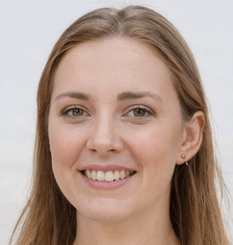Together we’re learning how to tell our stories without words.
They say if a picture could talk, it would speak a thousand words. That is the goal in Dodoma, Tanzania, where a group of young artists have been given new tools to express themselves when words have failed. Through drawings and paintings, these young children are finding ways to talk about one of the hardest stories they have ever had to tell – a story where AIDS has taken the life of their mother, their father or a close loved one.
“My father died in 1995,” says 16-year Dotto John Daudi. “My mother in 2000,” he adds, followed by a lengthy silence. Dotto John looks down at his painting on a pink poster board as if drawing strength from it to tell the rest of his story. “I miss them still…”
Dotto John is part of a growing population of orphaned and vulnerable children (OVC) who are taking up the responsibilities of adulthood at alarming rates. Without parents, proper care, a supportive social and educational network, the AIDS pandemic has become more than just a health crisis — it has robbed more than two million children in Sub-Saharan Africa of their innocence and childhood.
In 2005, Africare initiated a program to intensify HIV/AIDS community-based outreach in an effort to empower youth impacted or at risk of being affected by the virus. The Community-based Orphan Care Protection and Empowerment Project, or COPE, addresses basic needs like food, shelter, education and health care through support services and training programs… giving young people the tools they need to succeed.
Healing through art is a tool adopted by the COPE Clubs, which bring youth together to share experiences and receive training in life-skills, HIV-prevention, hygiene and decision-making skills.
“This is the way to represent your feelings,” notes Cyprian Mwangosi of Mpwapwa District. “It’s your way to tell the society.”
“This is for the orphans,” continues Dotto John. “I drew this picture to show how our society tries to help to support orphans to get their basic needs.”
Paired with educational and psychosocial support, COPE Clubs are giving youth access to income-generating opportunities and in-kind grants — a new way to bring money into their households to pay for basic needs such as clothing, food, medicine and school fees.
The results have been inspiring. Across the four COPE countries (Mozambique, Rwanda, Tanzania and Uganda), the income-generating strategy has amassed enough savings of to support more than 12,000 orphans. HIV/AIDS Service Corps Volunteers have helped establish more than 300 COPE Clubs serving 19,500 out-of-school youth. Block grants have enrolled over 7,500 youth back into school and supported nearly 76,000 OVC with scholastic support including uniforms, notebooks, pens and other school supplies. Such initiatives support children just like Dotto John and Cyprian, who are being given new opportunities to succeed through less conventional ways…like art!
“When you see that picture you can get knowledge,” begins Cyprian while looking down at one of his COPE drawings, “you can see the problems of the village and the problems young people are facing. You can also see areas where there’s room to help.”
How will you help this World AIDS Day? Keep the COPE story alive. Pass It On! for Africare.
|
|
|
|---|

Barbara Meier schreibt seit vielen Jahren für die NPAlliance Ratgeber und Testberichte. Dabei legt sie großen Wert auf die Ausführlichkeit sowie Richtigkeit ihrer Artikel. Sie zählt zu den wenigen Experten in ihrem Gebiet und hat sich über die letzten Jahren einen Namen in der Gesundheitsbranche gemacht.
